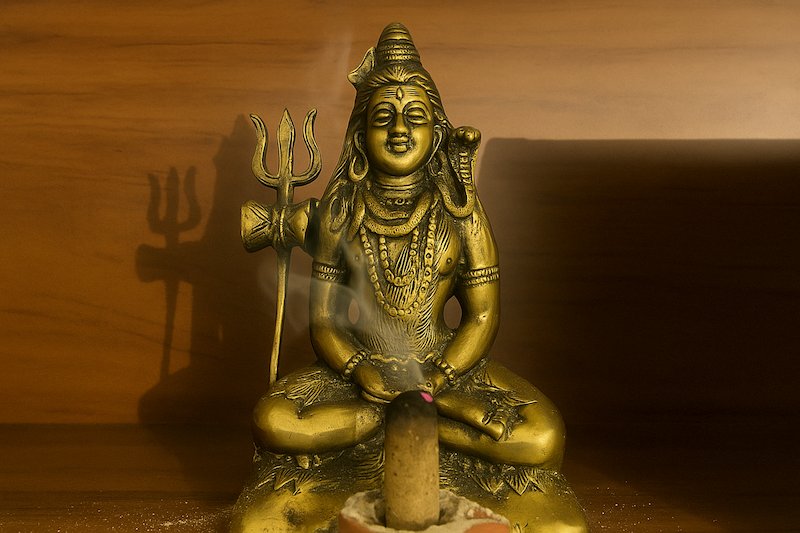Shiva Swarnamala Stuti

A devotional exploration of the Shiva Swarnamala Stuti, a golden garland of verses attributed to Adi Shankaracharya, with full text, translations, and spiritual significance.
Among the many devotional hymns dedicated to Lord Shiva, the Shiva Swarnamala Stuti stands out as a radiant offering of love, reverence, and surrender. Traditionally attributed to Adi Shankaracharya, this stotra is often described as a "golden garland" of words, each verse like a shining bead adorning the Lord.
The hymn is structured as a series of verses praising Shiva's attributes — his divine form, his consort Uma by his side, his role as protector and destroyer, and the refuge found at his lotus feet. Each stanza concludes with a heartfelt refrain: Sāmbha Sadāśiva Śambho Śaṅkara Śaraṇaṁ me tava caraṇayugam — "O Shiva, Sadashiva, Shambhu, Shankara, I seek refuge at Your feet."
Beyond its poetic beauty, the Swarnamala Stuti carries deep spiritual significance. Reciting it is believed to purify the mind, dissolve ignorance, and invite divine grace. Devotees turn to it for peace, clarity, and protection, often reciting it during Shiva puja, on auspicious Mondays, or as part of daily prayer.
The text reflects the heart of Advaita devotion: surrendering the ego and realizing unity with the divine. Just as gold is pure and untarnished, so too is the love expressed in these verses — simple, radiant, and eternal.
For seekers and devotees alike, the Shiva Swarnamala Stuti is more than just a hymn. It is a path to inner stillness, a reminder of divine refuge, and a garland of devotion lovingly offered to Mahadeva.
Sample Verses & Translation (Partial)
Here are a few sample verses with rough meaning:
| Sanskrit | Approximate English Meaning |
|---|---|
| Isha Girisha Naresha Paresha Mahesha Bileshaya Bhushana Bho… Sāmbha Sadāśiva Śambho Śaṅkara Śaraṇaṁ me tava caraṇayugam | O Lord, sovereign of the mountains, king of men, supreme lord — you who wear divine ornaments; O Saambha / Sadashiva / Shambho / Shankara, I take refuge in Your pair of feet. |
| Umayā divya sumangala vigraha yāliṅgita vāmāṅga vibho… Sāmbha … | O Lord, whose form is supremely auspicious and beautiful, with the loving association of Uma (Parvati) on the left side; O You who are eternally auspicious — I take refuge in Your feet. |
| Ūrī kuru mama ajñāmanāthaṃ dūrī kuru me duritaṃ bho… Sāmbha … | O Lord, make me, who am ignorant and without an intellect, Your own; take away my sins and sorrows. I take refuge in Your feet. |
